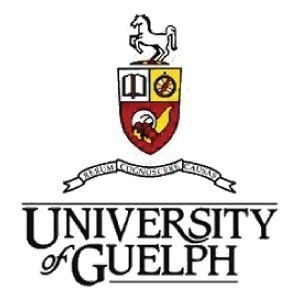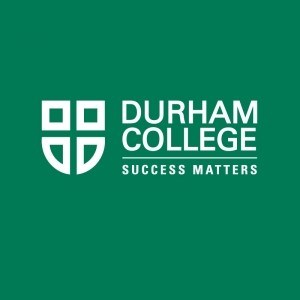Photos of university / #uofgadmission
The Bachelor of Science in Real Estate and Housing at the University of Guelph offers students a comprehensive and in-depth education designed to prepare them for successful careers in the dynamic field of real estate, property development, and housing management. This program combines theoretical knowledge with practical skills, equipping graduates to understand the complexities of property markets, valuation, investment analysis, and urban development. Students will delve into topics such as real estate finance, market analysis, land use planning, property law, and sustainable housing practices, gaining a well-rounded understanding of the industry from multiple perspectives. The curriculum emphasizes critical thinking, ethical decision-making, and innovative problem-solving to address contemporary challenges in housing and real estate development. Additionally, students have opportunities for hands-on learning through case studies, industry placements, and partnerships with professional organizations, which enhance employability and foster professional networks. The program is designed to serve students interested in careers ranging from real estate brokerage, property management, and urban planning to real estate finance and housing policy. With an emphasis on sustainability, social responsibility, and community engagement, the Bachelor of Science in Real Estate and Housing prepares graduates to contribute positively to society while maintaining professional excellence. Upon graduation, students are equipped with the knowledge, skills, and ethical foundation necessary to succeed in a competitive and evolving industry, making meaningful contributions to the development of vibrant, sustainable communities.
The Bachelor of Science in Real Estate and Housing at the University of Guelph provides students with a comprehensive education in the principles and practices of real estate, property management, housing development, and urban planning. This program is designed to equip students with the essential skills and knowledge necessary to thrive in the dynamic and evolving real estate industry. Throughout their studies, students explore topics such as real estate finance, market analysis, property valuation, land use planning, sustainable development, and legislative frameworks governing property transactions. The curriculum combines theoretical foundations with practical applications, including case studies, industry projects, and internships, enabling students to develop critical thinking, analytical skills, and ethical considerations relevant to the profession.
Students will learn about the real estate market from multiple perspectives—including commercial, residential, and industrial sectors—gaining insights into investment strategies, property management, and brokerage operations. The program also emphasizes the importance of sustainable and responsible development, preparing graduates to contribute positively to community planning and urban growth. In addition, students have opportunities to engage with industry professionals through guest lectures, networking events, and cooperative education placements. The interdisciplinary approach ensures that graduates are well-prepared for careers in real estate development, appraisal, property management, government planning agencies, and private consulting firms.
The curriculum is designed to promote not only technical expertise but also strong communication, leadership, and ethical decision-making skills. Students also have access to state-of-the-art facilities, resources, and research centers that support their academic development. Upon completion of the program, graduates will be equipped to pursue professional designations and certifications recognized in the industry, positioning them for successful careers in the real estate and housing sectors. Overall, the program aims to produce knowledgeable, innovative, and socially responsible professionals capable of shaping sustainable communities and impacting the future of the housing industry.
The Bachelor of Applied Science (BASc) in Real Estate and Housing at the University of Guelph requires students to complete a comprehensive curriculum designed to develop expertise in real estate principles, housing policy, and urban development. The program encompasses core courses in real estate finance, property management, real estate appraisal, and urban planning, complemented by foundational courses in economics, business, and environmental studies. Students must fulfill general education requirements, including communication, humanities, and social sciences, to ensure well-rounded academic development.
The program mandates the completion of approximately 120 credit hours over the course of four years of full-time study. In addition to classroom coursework, students participate in practical experiences such as internships and cooperative education placements, which provide real-world exposure and professional networking opportunities. These experiential learning components are integral to preparing graduates for careers in real estate development, property management, housing policy, and related fields.
To graduate with a Bachelor of Applied Science in Real Estate and Housing, students must maintain a minimum cumulative grade point average (GPA) as specified by the university, typically around 60-65%. Some courses may have prerequisites and co-requisites, requiring students to complete foundational modules before advancing to more specialized topics. The program also emphasizes ethical standards and sustainability practices in real estate and housing, reflecting contemporary industry demands.
Throughout the program, students are encouraged to engage in research projects, case studies, and seminars to deepen their understanding of current issues affecting the housing market and real estate industries. The curriculum is periodically reviewed and updated to incorporate emerging trends and technological advancements such as smart housing, green building practices, and digital real estate transactions.
Graduates of the program gain the knowledge and skills necessary to pursue professional certification or licensure in real estate, as well as to enter graduate studies in related fields. The program’s comprehensive approach ensures that graduates are well-equipped for leadership roles in urban development, real estate investment, housing policy formulation, and sustainable development initiatives, aligning their careers with the evolving needs of communities and industries nationwide and internationally.
The University of Guelph offers a comprehensive approach to financing studies within its Real Estate and Housing program, designed to support students throughout their academic journey. Tuition fees vary depending on the program level and student residency status, with domestic students typically paying lower tuition rates compared to international students. For the most accurate and updated fee information, prospective students are encouraged to consult the university's official website or contact the admissions office directly. In addition to tuition, students should consider costs associated with textbooks, supplies, housing, and living expenses, which can significantly impact the overall cost of education.
The university provides a range of financial aid options to assist students in managing these costs. Scholarships and bursaries are available based on academic merit, financial need, or specific criteria related to the program. These funds do not need to be repaid and can substantially reduce the financial burden. Ontario residents may also qualify for government grants and loans, such as the Ontario Student Assistance Program (OSAP), which offers low-interest loans and grants to eligible students. International students have access to different funding opportunities, including scholarships, which are often awarded based on academic achievement or specific criteria relating to their home country.
Apart from external and internal financial aid, the university encourages students to explore part-time work opportunities on campus. The Guelph Student Work Study program offers part-time employment tailored to students’ schedules, allowing them to gain work experience while supporting their studies financially. Additionally, many students secure part-time work in the local community, balancing employment with academic commitments.
Funding options also include payment plans that enable students to divide tuition and fee payments into manageable installments over the semester or academic year. This flexibility helps reduce the upfront financial burden and makes pursuing the program more accessible. For those interested in loans, students are advised to compare terms and interest rates to choose the most advantageous options.
The university also offers resources and workshops to help students plan their finances effectively, including budgeting advice and financial literacy programs. These resources aim to equip students with skills to manage their educational expenses responsibly, ensuring they can focus on their studies without undue financial stress. Overall, the University of Guelph provides a variety of financial support mechanisms to help students finance their studies in Real Estate and Housing, promoting access and success for all enrolled students.
The Bachelor of Commerce in Real Estate and Housing at the University of Guelph prepares students for a dynamic and growing industry that plays a vital role in the economy and community development. This program combines business fundamentals with specialized knowledge in real estate principles, property management, housing policy, urban development, and sustainable building practices. Students gain a comprehensive understanding of the residential, commercial, and industrial property markets, developing skills in real estate valuation, investment analysis, and ethical decision-making within the context of housing and urban planning.
Throughout the program, students have opportunities to engage in practical learning through case studies, internships, and co-op placements with industry partners, government agencies, and community organizations. The curriculum emphasizes sustainable and responsible building practices, affordable housing solutions, and the social implications of housing policies. Coursework covers topics such as real estate law, finance, appraisal, development processes, and market analysis.
The program also offers specialized electives allowing students to tailor their education towards areas of interest such as real estate development, property management, housing policy, and urban planning. Students are encouraged to develop strong communication, negotiation, and analytical skills, which are essential for success in the competitive real estate industry. Graduates of this program are well-equipped to pursue careers in real estate brokerage, property management, development consulting, housing policy analysis, or further studies in related fields.
The university provides state-of-the-art facilities, dedicated faculty with industry experience, and a vibrant campus environment that supports academic and personal growth. The program’s strong emphasis on ethical practices and community engagement aims to develop professionals who contribute positively to society by addressing housing affordability, sustainable development, and urban revitalization challenges.
Overall, the Bachelor of Commerce in Real Estate and Housing at the University of Guelph offers a comprehensive education that combines theory with practical application, preparing students for a successful career in one of the most essential sectors impacting everyday life and economic stability.



